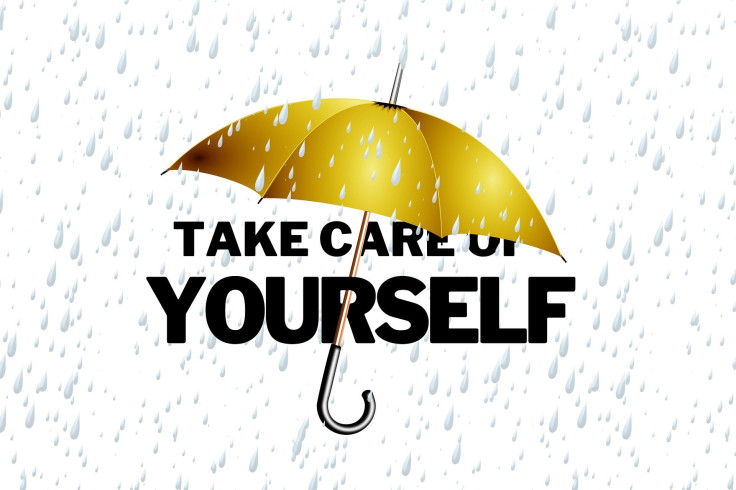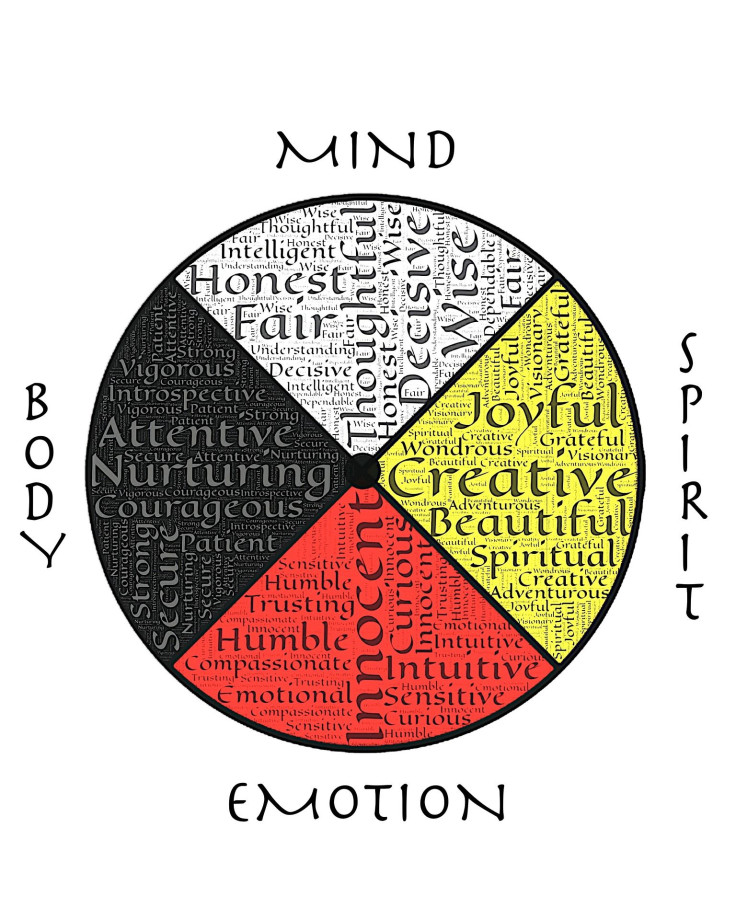The Well-Being Factor
The number one metric you may be overlooking.

As we hit the halfway mark of our second year of Social Capital articles and expand our list of extraordinary honorees, we continue to strive to also expand on the details of what exactly defines Social Capital and how to be a Social Capital leader. What an exciting and informative journey it has been.
Generally, Social Capital is all about a greater understanding of the importance and real value of respecting humanity in business and life through better treatment of customers, employees and the communities in which businesses operate, but we continue to dig deeper in order to zero in on specific characteristics and practices that Social Capital leaders exhibit.
One of those is the appreciation of human well-being and how to foster it in every aspect of your business. That’s more important now than ever before. Truth is that it’s always been important and always will be, but the great COVID-19 outbreak of 2020 and beyond made many employers realize it more than ever.
Distressed and worried employees have compelled employers to find ways to be more understanding and accommodating toward their employees. But that was just the beginning. What began as a way to sway employees into not leaving or to coming back after the crises abated soon evolved into a greater understanding of the importance and value of well-being and the ways to promote it.
The secondary effects of those efforts were amazing. It quickly proved to be a powerful way to reduce absenteeism and healthcare costs, increase employee engagement, improve employee productivity, improve employee morale, and retain and attract talent, not to mention just plain making the workplace a whole lot more enjoyable a place to be for everyone. That happiness was felt all the way down the line to the customers.
In fact, the effects have been so real that some have even suggested having a well-being factor numerically determined for a company might be a good idea in order to let employees and customers know. That may be in the cards for our section soon to come.
But in the meantime, how and whether or not it can be numerically defined perfectly, you certainly can recognize it when you see it. And these companies we honor this month display it in a few very specific ways. They have all figured out that the well-being of those they affect in their business is the key to their purpose and, ultimately, their profit.
All these companies do right by their customers and employees when it comes to economic considerations and also flexible workplace solutions -- that’s definitely a commonality among all of them. That goes without saying because they are a Social Capital company. But we have zeroed in several other very specific attributes of the Well-Being Factor, which we honor these companies for.
In fairness to the rest of our other Social Capital companies, we recognize that many of them have these attributes as well, and we hope many more companies will come to have them in the future. But, for this month at least, we are honoring these 10.
Congratulations to these companies, and thanks for exemplifying well-being.
Manny Maceda: Bain & Company
Self-Efficacy
“We help you see the world differently, discover opportunities you may never have imagined, and achieve results that bridge what is with what can be,” proclaims Bain & Company.
There is an authentic and impressive effort made to inspire people to succeed by expressing themselves honestly and openly, thereby allowing employees, clients and everyone they affect to truly be all they can be. Maybe that openness and appreciation of everyone at every level has something to do with their leader Manny Maceda rising to the role of world-wide managing partner from being a summer intern many years ago.
This eventually led Bain to create The Bain Inspirational Leadership System -- made up of 33 elements the company identified as statistically significant traits or characteristics for inspiring others, and it all starts with centeredness -- considered the most universally important of all. Self-awareness, independence, self-actualization and optimism, to name a few of the other 33, all aim to help people achieve their best selves.
Bain believes that “if people are your most important asset, it makes sense to invest in them accordingly.”
That imperative of empowerment through self-expression extends itself into all the clients and companies the company works with. As its website proudly declares, “ We champion the bold to achieve the extraordinary.”
At the heart of this is an ongoing effort to help its own employees and those of the companies it consults with tap into their own greatness by holding events where employees are encouraged to share their personal stories in order to increase self-awareness and understanding.
Creating a trusting environment where people feel comfortable freely expressing themselves this way obviously requires a commitment that employees can plainly see, but it pays off in the end.
“When you commit to a purpose, employees are happier and more productive, companies have better recruitment and retention rates, customers are more loyal, and performance increases overall,” says Manny.
Alexi Robichaux and Eduardo Medina: Better Up
Personal Development
Better Up describes itself as “The first Whole Person™ platform to transform performance and growth for people, teams, and organizations where it matters most -- career and leadership development, proactive mental health, and inclusion and belonging.”
It does so in a variety of ways and through a whole lot of programs and support that allows different companies to maximize their focus on the individual employee and how they can improve and, subsequently, how the whole company can improve.
On the surface one might think this is the same as self-efficacy, but there is a difference here in that this company and others that focus on personal development are crafted specifically for that purpose. A big part of this involves high-level coaching to improve individual “resilience, adaptability, and effectiveness.”
Alexi and Eduardo’s desired goal is to help people overall to have more meaning and purpose in their lives so they can live better and have fuller and fulfilling lives. That increase in purpose and passion translates into greater success for the companies they consult with.

Lorna Borenstein: Grokker
Employee Engagement
“A sense of well-being is foundational to engagement in life, let alone work, so it simply has to be prioritized,” says Lorna Borenstein, founder and CEO of Grokker. In her own early career, and while her children were young, she recalls being willing to burn the candles at both ends, with too little regard for her whole-person well-being. “I suffered for not spending enough time on the things that actually make me feel -- and be -- my best,” she shares. “My personal journey of learning how to intentionally pursue a balanced mind, body, soul, family and social life has been powerful, and something I enjoy sharing with others. I’m so inspired by organizations who bake well-being into their cultural DNA and make caring for employees central to their leadership approach -- it’s the right thing to do for everyone, and it leads to better business outcomes, time and time again.”
Lorna believes companies that take an employee-first approach to taking care of their people are using their well-being programs to help strengthen their cultures, attract new talent and retain their employees. “We have countless examples of customers who are doing it right and experiencing real results -- boosting morale, camaraderie and employee engagement -- amidst disruption in the employee base due to the pandemic, Great Resignation and, for the airline industry, serious employee discontent.” One example she shares is a leading airline client that introduced a program-based incentive program to drive healthy behavior change. The employer allowed employees to choose their focus area -- work/life balance, mental health and/or financial wellness -- and rewarded them for doing activities that were related to their personal goals. Nearly a quarter of its population participated!
As a company founded with the vision of advancing the personal pursuit of physical, emotional and spiritual well-being, Grokker is, at its core, a well-being culture. “From the earliest days,” Lorna says, “I’ve funneled my own enthusiasm for whole-person health and wellness into not just Grokker’s product, but our people and the entire Grokker community of customers and members. The Grokker team is like a family, and everyone is encouraged to live our vision and take our company value of ‘it’s personal’ very seriously. We also take time to have fun together at formal and informal social and team-building events.”
Grokker leaders give their people permission to take care of themselves by setting an example -- they “care out loud” by normalizing self-care and even family caretaking as part of a work day. And leaders not only ask employees what they need, they follow through! This is what Lorna, in her book “ It’s Personal: The Business Case for Caring,” calls “Listen, Link, Live™.”Advising employers to “Listen to them. Understand who they are and what they need, both the big things and the small,” she says, “We take this understanding to link the culture to our purpose and employees’ day-to-day experiences.” This truly manifests employee engagement, an individual element within the broader topic of well-being that we focus on in this article as we are so happy to honor Lorna once again as a Social Capital leader.
Lorna believes the future of work is about empathy, which will be the sustainable differentiator between employers of choice and those who are not. “Employees are requiring a sense of purpose, belonging and balance, which is, in turn, transforming the role of employers from mere beneficiaries of employee health into supportive partners who see and treat their workforce as whole people, especially during our modern times of unprecedented uncertainty,” she says. And this, of course, is foundational to employee engagement.
Brian Niccol: Chipotle
Health of the Community
Brian Niccol is passionate about using the opportunity he has as CEO of Chipotle to make a deep and lasting impact on all the lives of the people his company touches, from the employees to the customers to the famers who provide the food he serves, and, in general to improving the health of the world.
“We can make a really positive impact on climate, people, animals, farms -- it just rolls on and on,” Brian shared in an exclusive interview with us a while back. “It’s such a simple idea, but not everybody’s ready to spend the time or the resources -- like upcycling an avocado pit into clothing … I think it’s as important to do these little things as that is how we achieved our goal of 51% waste diversion.”
When CEO Brian Niccol came over from Taco Bell a few years ago to Chipotle Mexican Grill, the company was fighting for its life amid the disastrous ripple effects of two E. coli outbreaks. Many CEOs might consider slashing production costs and funneling funds into a massive public relations and advertising campaign to deal with such a crisis; Niccol did exactly the opposite. He redesigned the whole company around the goal of delivering the highest-quality food available even if it cost more to do so, and that’s a commitment he refuses to compromise on.
“I tell people all the time when they join our company: I know you’ll look at our food costs and the first thing you’ll tell me is we spend more on food than others,” explains Niccol. “And I’m, like, well, I think we should; we’re a food company. If there is a place we should be investing, we should be investing in food. And if that means to invest further in terms of safety and to invest further in farmers and invest further in the supply chain to do it in a safe way, then we should be doing that.”
Niccol rebuilt the company’s reputation and its profits through his dedication to those principles. After the E. coli outbreak, Chipotle closed stores in affected markets for deep cleaning, implemented incredible new food safety procedures and reassessed safety risks of every ingredient on its menu "with an eye toward establishing the highest standards for safety.” That included DNA-based testing of ingredients before they are shipped to Chipotle locations, and extensive changes to food preparation and handling practices. New paid sick leave plans were designed to ensure ill employees stayed home. Chipotle also spent millions to help local farms meet food safety standards, and to make more local ingredients available across the country.
Chipotle devoted itself to making sure it provides healthy food, served in a healthy place and produced in a healthy way that is good for consumers and the rest of the supply chain.
“Whether it’s our employees talking about the work we’re doing with a young farmer, or helping a farm move to regenerative farming or organic soils, it lights up our employee because they get excited about the food and our company at another level. I think it excites our customers when they start to discover we really are trying to make ‘food fast’ done differently.“
Shawn Conway: Pete’s Coffee
Health of the Community
“What I’m really proud [of] is how we scale with soul,” Shawn Conway, CEO of Peet’s Coffee, shared with us in a very animated interview following our honoring him in our August 2021 feature, “ Social Capital: Changing The World By Changing How The World Does Business.”
Peet’s approach to scaling its business has broader impact on the well-being of the communities in its supply chain, starting with the farmers who grow the coffee beans. Working with small farms in relationships that go back three or four generations, Shawn emphasizes, “We have impact programs in those areas so the things that are unique to those areas -- it could be help with water treatment, it could be really anything -- we have a very strict set of standards. But our goal is continuous improvement.” This is what we are calling out as the “health of the community” factor of well-being, for which we are pleased to honor Shawn yet again as a Social Capital leader.
And Peet’s has its own approach to certification, with its own programs. “We’re not big on buying certifications,” Shawn says. Instead, Peet’s developed an innovative one with Enveritas, an organization aiming for “carbon neutral coffee” through its efforts working, as its website explains, “with partners in Southeast Asia to understand the impact of planting mangroves that are linked directly to the carbon dioxide footprint of our roaster’s customers.” Relying on actual visits to each farm that Peet’s sources from, Shawn says, “We want to understand the conditions and … when we find conditions there that need improvement, we help.” The point Shawn makes very clear throughout the interview is, “It’s not excluding people; it’s lifting people up, helping them to a better life.”
And then there’s the women’s entrepreneur center Peet’s funds in Colombia to make sure that women farmers have the opportunity to learn the business skills so they can run better businesses.
At its core, Shawn says, “For us, we believe that having a good business and a thriving business allows us to have a great and positive impact on people in some really meaningful ways.” After all, he explains, “In one sense, we’re a coffee company. We’re also a people company. And the humanity of this business is one of those things that, once you understand it through that lens, a lot of the things we do seem to make a lot more sense to people.”
Raghu Raghuram: VMware
Self-Efficacy
Last year, we honored VMware and its then CEO Pat Gelsinger because of the obvious love and respect he showed for his “techies” and his support and promotion of programs to help people find their “inner techie,” so to speak. We honor new CEO Raghu Raghuram for continuing to support such programs and for his overall respect for employees and their self-development.
These programs include those to develop technical skills in those who want to enter the technical field, including most especially women, and those for continuing education in the technical field, so that “you can be the best you can be.”
Another big contributor to self-efficacy was the company’s development of the Anywhere Workplace, which allows them to help companies empower employees to be at their productive best from anywhere in the world and from any device, allowing them to not be tied to a desk and to actually have a life outside their work.
Raghu summed up this commitment in his address to employees after taking the helm of the company when he promised to “create an environment for you to do your best work for our customers and communities. Your success is VMware’s success. And with that, your well-being remains a top priority for me and the leadership team.”
Well done, sir.

Alyson Watson: Modern Health
Mental Health
As Alyson candidly explains in our exclusive interview “ Alyson Watson Aims To Make Every Day A Mental Health Day,” she designed Modern Health to enable people to be proactive about their mental health before they reach a crisis point.
As its website states, “We see things differently at Modern Health. Our mission is to destigmatize mental health care, break down barriers to access, and give everyone the tools they need to build resilience, proactively engage in their mental health, and get the clinical support they need when they need it.” All of which relies on a foundation of educating people about mental health -- and impacting Social Capital in a fundamental way.
Alyson founded Modern Health to empower employers to lead the charge in acknowledging that mental health is just as important as physical health and to help expand the availability of mental health services with virtual and web-based programs that companies could offer to their staff. She had learned through her own experience that knowledge of our own mental health and where and how to get help with it is not just important but something that is sorely missing in our society at a time when we need it more than ever.
Specifically, Alyson designed Modern Health to enable people to be proactive about their mental health before they reach a crisis point. The traditional path to a mental health provider can be byzantine; Modern Health, by contrast, engages people the way they are accustomed to accessing information today -- on a mobile device, in real time, with the ability to customize. Alyson says it "makes mental health cool."
The impetus behind both the creation and design of Modern Health was a confluence of personal crises. “I had friends and family around me who encouraged me to keep going, but many people don't [have this level of support],” recalls Alyson. “That's when the light bulb went off for me that there had to be a better way to proactively engage people in their mental health.”
Mike Wirth: Chevron
Social Connection
“I am proud to lead a company filled with problem-solvers -- engineers, scientists, analysts, business partners, operators, mechanics, neighbors and environmentalists who work diligently every day to develop the energy that improves lives,” Mike shares on his LinkedIn page. “Together, we’re committed to leading in the future of energy by delivering results the right way.”
And in an interview with “The Way Ahead” online publication, he shared, “It can feel like the world is a colder and riskier place, [but] we've been through these things before, and we generally know that society comes through. We learn lessons. We become stronger over time and create opportunities for personal growth and societal learning that can continue to make the world a better place.”
Chevron began a business transformation initiative in 2019 to activate a coaching culture across its global organization. But just a year later, the stressors of the pandemic left Chevron’s leaders feeling disconnected and uncertain. Matt Dodson, manager of organizational development, knew Chevron needed to support individuals with personalized opportunities for connection and growth to keep the company agile and moving toward a cleaner energy future. Plus, as the company was revamping its performance management process, leadership knew that providing coaching for frontline supervisors and managers who were facing pressure to deliver results would be imperative to their ongoing success.
He helped Chevron implement Coaching Circles to bolster a sense of community and camaraderie, connecting team leads in group learning sessions. In a Coaching Circle , a certified coach guides a group of six to eight employees on a learning journey by meeting weekly for six weeks. This intimate setting encourages participants to tap into a community with similar aspirations, exchange ideas, and find practical ways to apply their learnings.
“One of the things I'm really proud of is the heart that our people have,” Mike said in an interview on The Way Ahead online publication. “Our employees have donated money from their own pockets ... The stories on our internal social media site, where employees share what they've done are incredibly heartwarming ... We empower people, we encourage people and they move to action based on what the local needs are very rapidly.”
For helping to foster this social connection factor of well-being, we are pleased to honor Mike as a Social Capital leader.

Chris Nassetta: Hilton
Cultural Awareness
“There is an unstoppable force that exists with humans,” Hilton CEO Chris Nassetta said in a Bloomberg Television interview last December. “They want to network, they want to grow their business, to build relationships. And so I have no real worries.”
This was the reason for his optimism about business travel recovering from the lockdowns of the pandemic. But building relationships also underlies much of the hotel’s operations -- with cultural awareness a cornerstone of that focus. And cultural awareness as a factor of well-being is what we are honoring Chris for in this Social Capital feature.
As Hilton says in its corporate policy, “We are diverse by nature and inclusive by choice. Conrad Hilton set out to ‘fill the earth with the light and warmth of hospitality.’ Today, our instinct is the same: to look outward and create heartfelt experiences for Guests, meaningful opportunities for Team Members, high value for Owners and a positive impact in our Communities. We are more than just a business.”
Hilton sees diversity as being at the core of its vision, mission and values. “We are committed to an inclusive workforce that fully represents many different cultures, backgrounds and viewpoints. Our global brands provide meeting places for people from all walks of life to connect, creating a welcoming environment for all.”
The hotel’s operating manuals stress that understanding its team members’ unique perspectives, along with those of the guests, owners, suppliers and partners, is essential to driving the company’s competitive performance. “Our company will always strive to reflect the global communities where we live and work.”
In fact, Hilton’s Team Member Resource Group successes are a shining example of Hilton’s commitment to an inclusive workforce that fully represents many different cultures, backgrounds and viewpoints.
And Hilton remains committed to building a culture at scale, providing an ecosystem of resources and support, so that all employees feel like they are part of a family that embodies their values as it recognizes the tremendous diversity of cultures interacting throughout its operations.
© Copyright IBTimes 2025. All rights reserved.





















